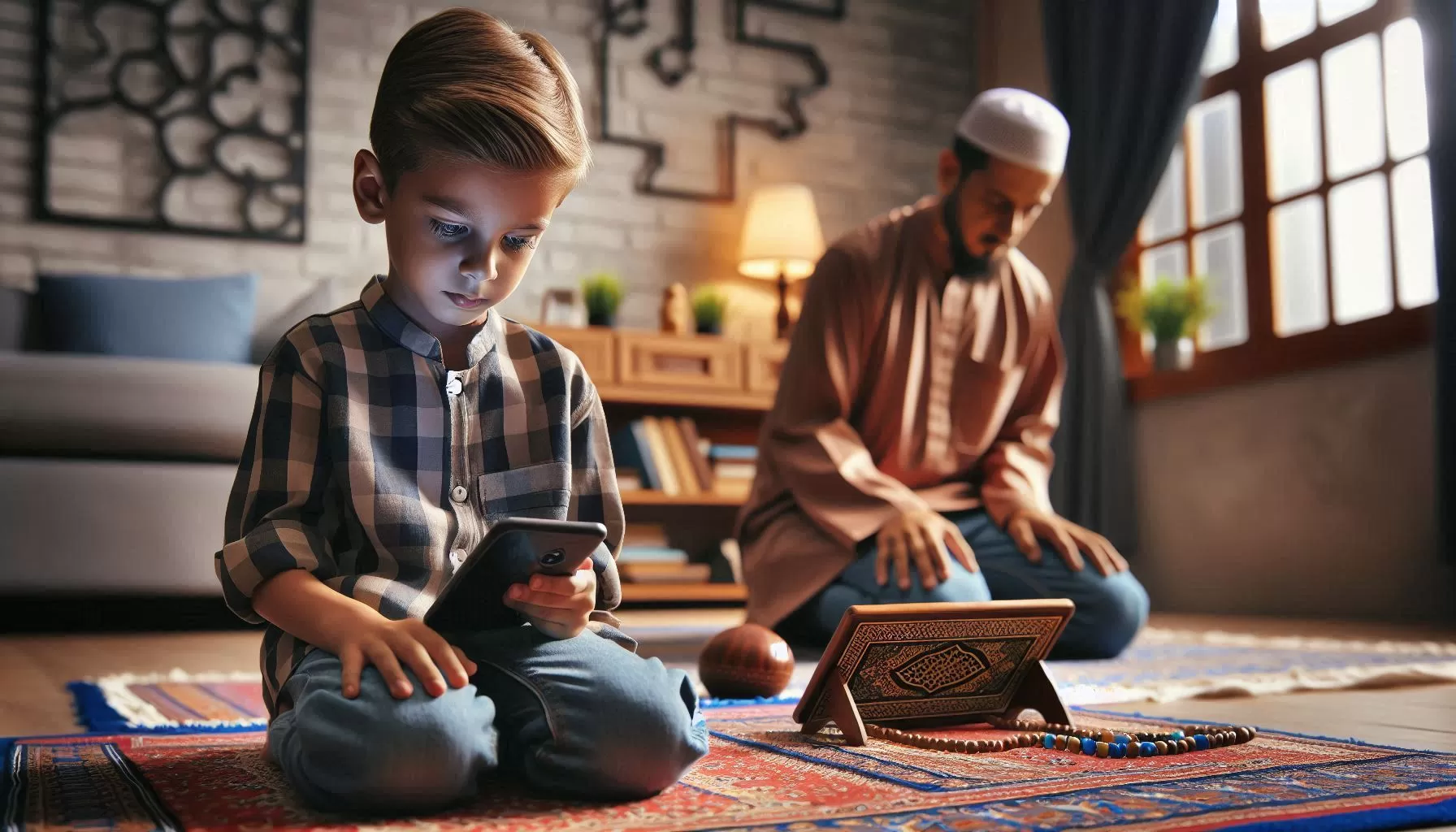Islamic Minimalism: Live Simply, Strengthen Faith and Find Peace

Can Minimalism Align with Islamic Values?
Minimalism, a lifestyle that emphasizes simplicity, mindfulness, and the removal of excess, has gained global popularity in recent years. For Muslim youth, the question arises: Can minimalism align with Islamic values? The answer lies in exploring the core principles of minimalism and how they resonate with the teachings of the Quran, the Hadith, and Islamic traditions.
Understanding Minimalism and Islamic Values
- Minimalism:Living intentionally with only what is necessary.Focusing on quality over quantity, contentment, and avoiding material excess.
- Islamic Perspective:Islam advocates for balance, moderation, and avoiding extravagance:
"And do not spend wastefully. Indeed, the wasteful are brothers of the devils." (Surah Al-Isra: 26–27)
Principles of Minimalism in Light of Islam
- Moderation (Wasatiyyah):Islam promotes a balanced lifestyle without extremes:
"Thus We have made you a justly balanced nation..." (Surah Al-Baqarah: 143)Minimalism helps avoid the extremes of materialism and asceticism. - Detachment from Dunya (Worldly Life):Islam emphasizes that the dunya is temporary, and the Hereafter is the ultimate goal:
"Know that the life of this world is but amusement and diversion and adornment and boasting to one another and competition in increase of wealth and children..." (Surah Al-Hadid: 20) - Gratitude (Shukr):Living minimally fosters appreciation for Allah’s blessings.
"If you are grateful, I will surely increase you [in favor]..." (Surah Ibrahim: 7) - Avoiding Extravagance (Israf):Minimalism aligns with Islam’s prohibition of wastefulness:
"Indeed, Allah does not like those who are extravagant." (Surah Al-A'raf: 31) - Contentment (Qana’ah):The Prophet (ﷺ) said:
"Wealth is not in having many possessions, but wealth is being content with oneself." (Sahih Bukhari, Sahih Muslim)
Practical Applications for Youth Muslims
- Decluttering Possessions:Islam encourages simplicity in living spaces. Excessive possessions can distract from worship and responsibilities.The Prophet (ﷺ) lived a simple life, owning few belongings, yet he was the most content.
- Intentional Spending:Buy only what is needed and avoid indulgence in luxury items.Prioritize spending on what benefits family, community, or the less fortunate.
- Mindful Technology Use:Reduce digital distractions that consume valuable time meant for Salah, Quran, and personal growth.
- Simplifying Social Life:Focus on meaningful relationships rather than superficial connections or competitive socializing.
- Choosing a Purposeful Career:Aim for professions that serve humanity and align with Islamic values, rather than those driven purely by financial gain.
Benefits of Minimalism for Youth Muslims
- Spiritual Clarity:Fewer distractions allow more time for Salah, Quran reflection, and Dhikr.
- Better Mental Health:Minimalism reduces anxiety and stress caused by material pursuits and cluttered living.Science supports this: Studies show that simpler living improves focus and emotional well-being.
- Environmental Stewardship:Islam teaches care for the earth (khalifah or stewardship). Minimalism reduces consumption, waste, and harm to the environment.
- Community Impact:Living minimally allows Muslims to share wealth with the less fortunate, fostering societal harmony.
- Strengthened Faith:Detaching from worldly distractions aligns with the Islamic principle of preparing for the Hereafter.
Humanity and Minimalism
- Caring for Others:Minimalism encourages sharing resources with those in need. The Prophet (ﷺ) said: "He is not a believer whose stomach is filled while the neighbor to his side goes hungry." (Sunan Al-Kubra)
- Empathy and Simplicity:Simple living fosters a sense of equality and empathy for those less fortunate.
Islamic Historical Examples of Minimalism
- The Life of Prophet Muhammad (ﷺ):The Prophet (ﷺ) lived in a humble home with basic necessities, teaching that true wealth is in faith and good deeds.
- The Rightly Guided Caliphs:Abu Bakr (RA) and Umar (RA) exemplified minimalist lifestyles despite their leadership roles, choosing to prioritize the needs of the community.
Steps for Youth Muslims to Embrace Minimalism
- Reassess Intentions:Begin with the niyyah (intention) to align your lifestyle with Islamic values.
- Declutter Regularly:Remove unused items and donate to those in need.
- Practice Gratitude Daily:Reflect on Allah’s blessings and avoid the urge to accumulate more.
- Limit Social Media Influence:Avoid materialistic influences and trends on social media.
- Focus on Akhirah (Hereafter):Use time and resources wisely to earn Allah’s pleasure.
Impactful Takeaways
- Living with Purpose:Minimalism aligns with the Islamic principle of intentional living: prioritizing faith, family, and community.
- Avoiding Distractions:Simplifying life clears distractions that hinder worship and spiritual growth.
- Reducing Waste:Minimalism promotes eco-consciousness, fulfilling the duty of stewardship over the earth.
- Focusing on Eternal Success:Detaching from excess helps Muslims focus on the Hereafter, the ultimate goal.
Conclusion
Minimalism and Islamic values share a profound connection, emphasizing simplicity, gratitude, and balance. For Muslim youth, adopting a minimalist lifestyle fosters spiritual growth, enhances mental well-being, and empowers them to serve humanity and the ummah. By following the teachings of the Quran and Hadith, they can live a purposeful life centered on faith and eternal success.
HashTags: #IslamicMinimalism, #SimpleLiving, #MuslimLifestyle, #MindfulLiving, #FaithAndSimplicity, #MinimalistMindset, #DeclutterYourLife, #IslamicWisdom, #Zakat, #Sadaqah, #SimplicityInIslam, #SpiritualGrowth, #MuslimYouth, #EcoFriendlyLiving, #IslamicTeachings, #Gratitude, #StressFreeLife, #QuranAndLife




